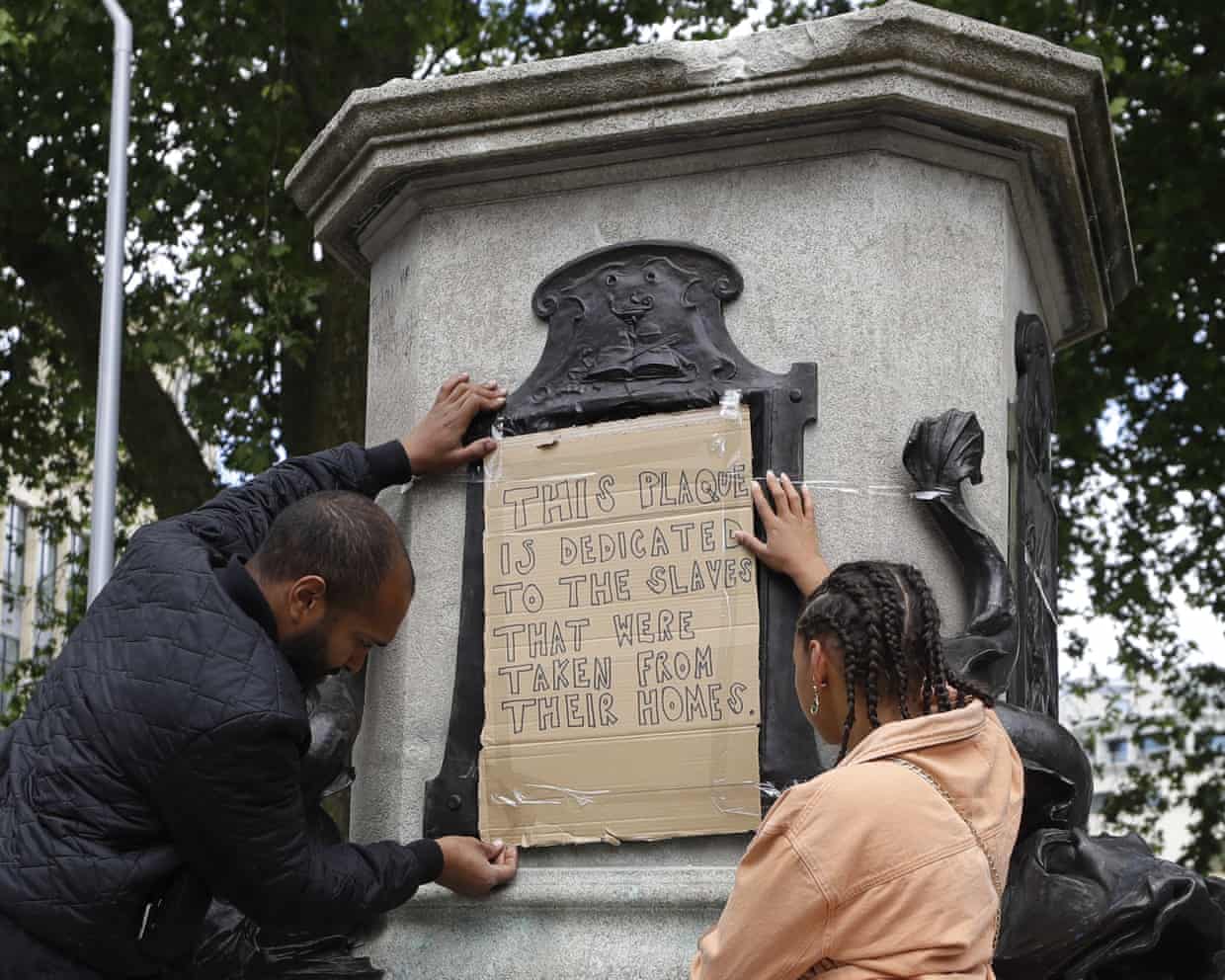As Black History Month unfolds in the UK, the conversation around reparations for transatlantic slavery has resurfaced, revealing a persistent divide in public opinion. The issue gained renewed attention following remarks by Keir Starmer, the leader of the Labour Party, during his recent visit to a Pacific island nation. Although he aimed to foster positive relations, his trip became overshadowed by calls for justice regarding historical wrongs, particularly reparations for the descendants of enslaved individuals.
During this visit, Starmer stated that discussions on reparations were “not on the agenda.” This response highlighted the reluctance of political leaders to engage with a topic that remains contentious. David Lammy, the then-foreign secretary and a former advocate for reparations, notably refrained from commenting, indicating a broader trend among politicians to sidestep the issue. It appears that many discussions about reparations are often characterized by misunderstandings, leading to a lack of meaningful dialogue.
Rethinking Reparations
To delve deeper into the reparations discourse, I spoke with Kojo Koram, a lecturer at the School of Law at Birkbeck, University of London. He emphasized that the conversation extends beyond simple financial compensation. Koram pointed out that the demands for reparative justice encompass a comprehensive restructuring of societal inequalities that continue to affect both the UK and the Caribbean.
Historically, the UK has not issued a formal apology for its role in transatlantic slavery. Although former Prime Minister Tony Blair expressed “deep sorrow” in 2006, many Caribbean nations did not consider this a legitimate state apology. In contrast, some institutions have taken steps toward acknowledgment. In 2020, the Bank of England issued an apology, while several organizations, including Lloyd’s of London, pledged to pay reparations. These actions, however, have not catalyzed a broader reckoning, as backlash has often curtailed progress.
Despite perceptions that the reparations movement has lost momentum, a recent report from the Runnymede Trust indicates otherwise. Scholars and activists continue to advocate for reparations as a vital issue that remains relevant today. “The movement is only gaining momentum,” Koram stated, emphasizing the ongoing relevance of reparations in contemporary discussions on inequality.
The Financial Reality of Reparations
The financial implications of reparations are staggering. A report published by the Brattle Group in 2023 estimated that the UK owes approximately $24 trillion (£18.8 trillion) in reparations across 14 countries. While some view these figures as evidence that reparations are impractical, Koram argues that the UK has already compensated enslavers in the past. When slavery was abolished, the British government borrowed £20 million to pay compensation to slave owners, a sum equivalent to around £450 billion today.
Starmer’s emphasis on “current future-facing challenges” during discussions about reparations suggests a disconnect between the demands of activists and the concerns of political leaders. Reparative justice, Koram argues, is not solely about financial restitution but also involves addressing structural inequalities. He notes that the reparations movement seeks to reframe global power dynamics, particularly in relation to climate resilience and economic disparities.
For instance, Koram highlights the need for equitable arrangements between the global north and south to address the climate crisis, suggesting that reparations can contribute to a more sustainable future. The demands of the reparations movement are multifaceted, addressing economic inequalities and advocating for changes in legal structures that continue to perpetuate injustice.
Some critics assert that there is no coherent plan for reparations; however, frameworks do exist. The Caribbean Community (Caricom), representing Caribbean nations, has proposed a ten-point framework calling for initiatives that include establishing museums, addressing health crises, and cancelling historic debts. These measures illustrate how the legacy of slavery informs contemporary issues and the need for a comprehensive approach to reparations.
Koram articulates that the past is inextricably linked to the present, challenging the notion that historical injustices can simply be dismissed as ancient history. He insists that the consequences of colonialism and slavery continue to shape the socio-economic landscape of Caribbean nations today. “The attempt to create a separation between the past and the present doesn’t hold up,” he remarked, underscoring the importance of addressing these historical legacies in contemporary discussions.
As the reparations debate continues, it increasingly intertwines with broader calls for racial equality. The ideological foundations established during the era of transatlantic slavery have lasting implications, influencing current perceptions of race and justice. Koram emphasizes that the struggle for reparative justice is not merely about financial compensation; it is also about confronting deep-rooted societal inequalities that persist in various forms across institutions.
In conclusion, the discussion surrounding reparations for transatlantic slavery remains a critical and evolving issue in the UK, especially during Black History Month. As activists and scholars like Kojo Koram continue to advocate for change, the need for a comprehensive understanding of the past and its implications for the present has never been more urgent. The push for reparations reflects a broader societal desire to address historical injustices and create a more equitable future.
